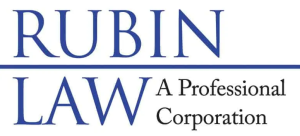
Purim – Meeting the Moment
This week we will celebrate the joyous holiday of Purim, which commemorates the Jewish victory over Haman who sought to annihilate our people. We will read Megillat Esther, a powerful tale of bravery, faith, and determination. It tells the story of Esther, a Jewish woman who becomes queen of Persia and risks her own life to save the Jewish people from destruction. But the lesson of Purim is more than just the incredible story of victory over our enemies – it is a clarion call for us to have the courage to meet the moment, live with purpose, and have a meaningful impact on the lives of others.
In Chapter 4, Esther’s cousin Mordechai learns of Haman’s genocidal plot to exterminate the Jewish people. He urges Esther, who has until now kept her Jewish identity a secret, to go to King Achashverosh and plead for the salvation of her people. Esther is hesitant, knowing that she is relatively safe behind the palace walls and would be risking her life to approach the king uninvited. In response, Mordechai sends her a strong message that is one of the most powerful lines in the Megillah, “If you remain silent now, salvation will come from elsewhere, but you and your people will perish. And who knows if it is not for this purpose that you attained your royal position.”
This line is one of the most compelling and thought provoking passages in the Megillah. It speaks to a larger truth about meeting the moment in our own lives and the purpose we might find in it. Each of us, regardless of our abilities or disabilities, has a unique set of talents and traits that shape our lives and create opportunities. We may not always recognize our own strengths or know why we are in a particular place or situation, but we can choose to embrace it and see it as an opportunity to serve a higher purpose. We can recognize that there really are no coincidences in life if we believe that G-d puts us where we are supposed to be, when we are supposed to be there. We can meet the moment and find our calling.
For Esther, her royal position was not just a stroke of luck or good fortune. Rather, it was an opportunity that presented itself to her through G-d’s hand, precisely because she was uniquely positioned to make a difference in the world. She had the power, influence, and access to resources that could be used to save her people from destruction. Similarly, each of us has the potential to make a difference in the world around us, no matter our ability or position in life. We can choose to see our circumstances as a chance to serve others, to make a positive impact, and to fulfill a higher purpose. We can meet the moment and find ways to use our unique talents and resources to make the world a better place.
The message of Megillat Esther is a powerful one, and one that resonates and inspires all of us at Libenu. Regardless of our abilities or needs, we all have a Divine purpose, a higher calling, and the potential to make a meaningful difference. Esther’s bravery and determination in the face of adversity serve as an inspiration to us all, reminding us that we can overcome obstacles and achieve great things if we stay true to our values and purpose.
May we all be blessed with the ability to meet the moment, live with purpose, and to make a positive impact in the world around us.
With best wishes for a Chag Purim Sameach,
Shana Erenberg, Ph.D.
CEO

From all of us at Libenu, we wish you a joyous Purim!
Special Needs Planning & Common Attorney Mistakes in Special Needs Trusts!
Benji Rubin, Rubin Law – Special Needs Legal & Future Planning
When parents of a child with significant disabilities begin planning for their child’s future, they are often told they need to do two things, “get guardianship” and “set up a Special Needs Trust (SNT).” This advice is woefully inadequate. This best course of action can only be properly determined by sitting down with an experienced special needs planning attorney.
A “complete special needs plan” is not simply setting up a Special Needs Trust (SNT). There are many factors to consider. The trust language must be exact. An SNT should never permit money to be distributed directly to the beneficiary (the individual with special needs) but rather to an ABLE account or directly to 3rd parties for goods and services. If an SNT was already established, the family needs to check to make sure it is the proper type (a third party SNT or a first party SNT).
Overly restrictive language is typical in boilerplate provisions of special needs trusts drafted by non-specialized attorneys. This has a significant impact on Supplemental Security Income (SSI). For example, trust expenditures on clothing do not impact SSI since a rule change about 20 years ago. Food expenses are likely not to impact SSI from 2025 or 2026 on. Further, housing expenditures do not eliminate the SSI benefit, but simply reduce it. In certain cases, it is in the best interests of the beneficiary to use trust assets for housing. Since most beneficiaries will not be on SSI for most of their life but will transition to regular Social Security based upon their parent’s record (or their own), or both, the SSI rules about housing expenditures can often be ignored. The decisions about each of these require personalization and expertise that only a special needs attorney can provide.
Finally, it is essential to have explicit language: to allow contributions to the non-profits that will provide services to the beneficiary over their lifetime, and gifts to the direct support professionals who serve them (eg. over the holidays); to allow for the gifting of assets to the SNT by parents or grandparents who may be in need of skilled nursing care while avoiding the “five-year look-back” period that generally applies to gifts made prior to qualifying for Medicaid; and to allow the trust to receive monthly pension benefits from certain applicable resources such as the Teachers Retirement System, State University Retirement System, State Employees Retirement System, etc., which will typically pay out to an SNT for a child of the retiree after a parent’s passing for the rest of that child’s life. Many beneficiaries of such sources are not even aware of this, or how to structure.
All estate planning documents have required special needs language. These include the parents’ wills, durable powers of attorney, irrevocable trusts, and revocable living trusts. Special needs planning is essential to help navigate the maze of adult services and programs to maximize essential supports for life, and to make sure that the beneficiary can truly live a life of maximum independence and with access to the resources they need.
www.rubinlaw.com




